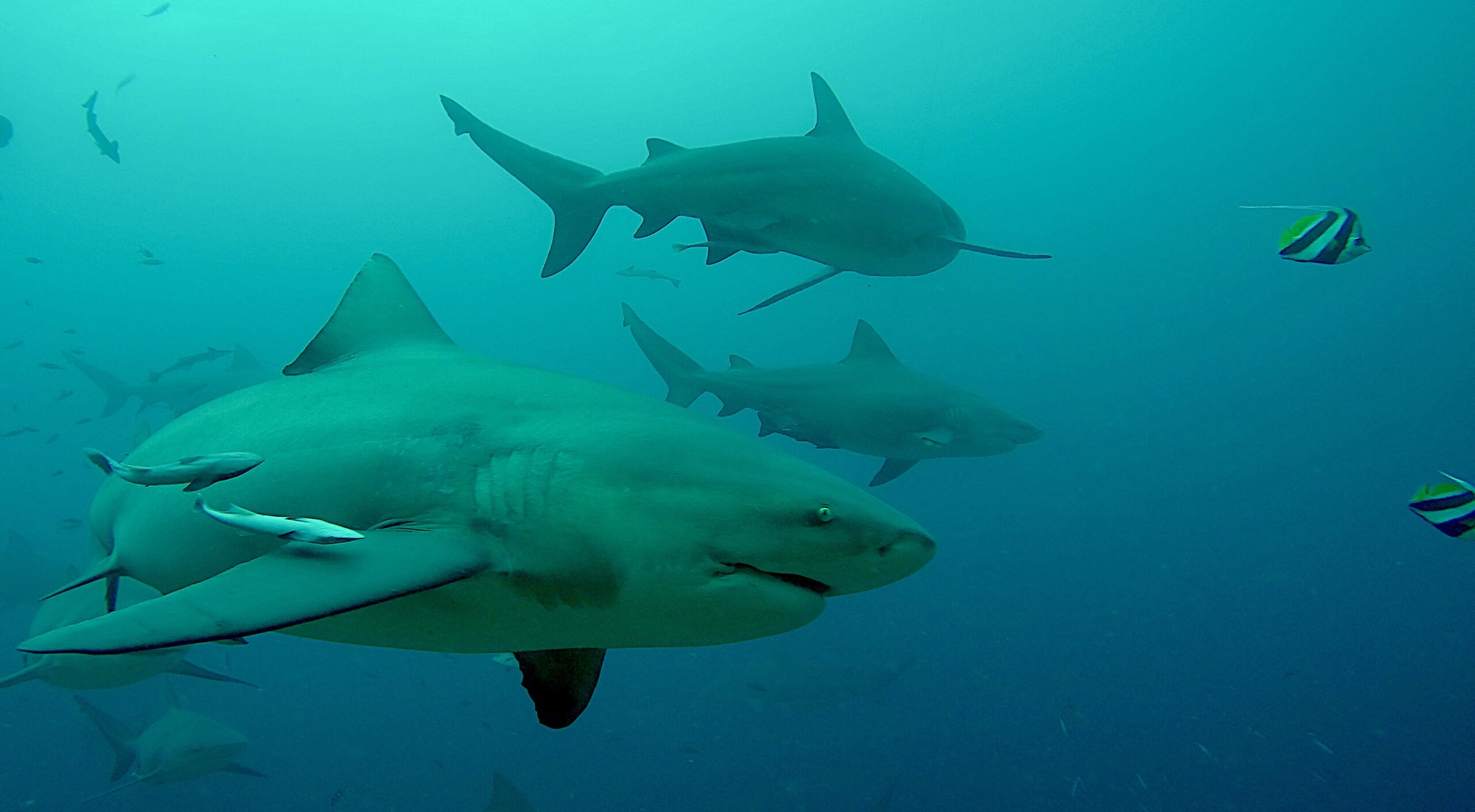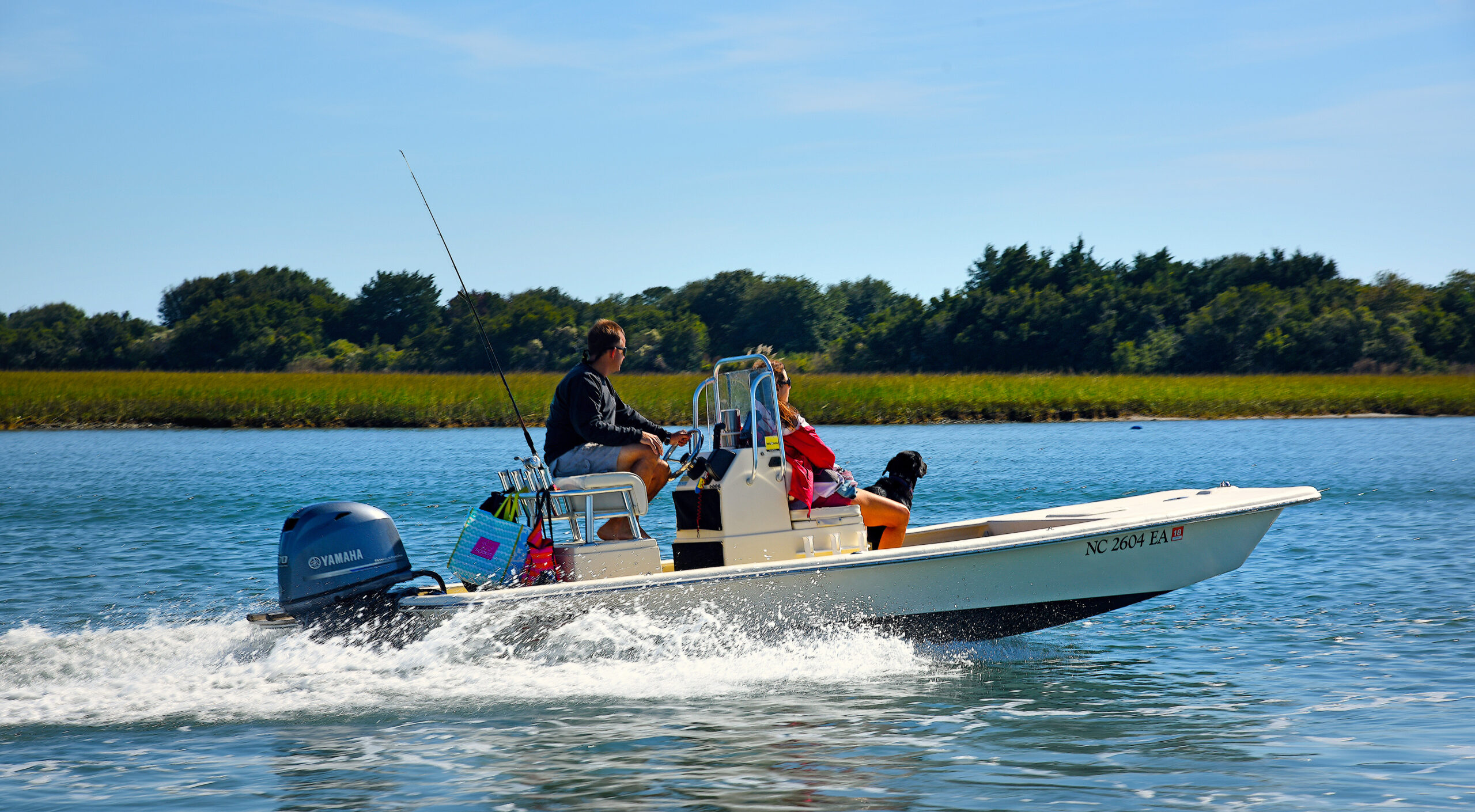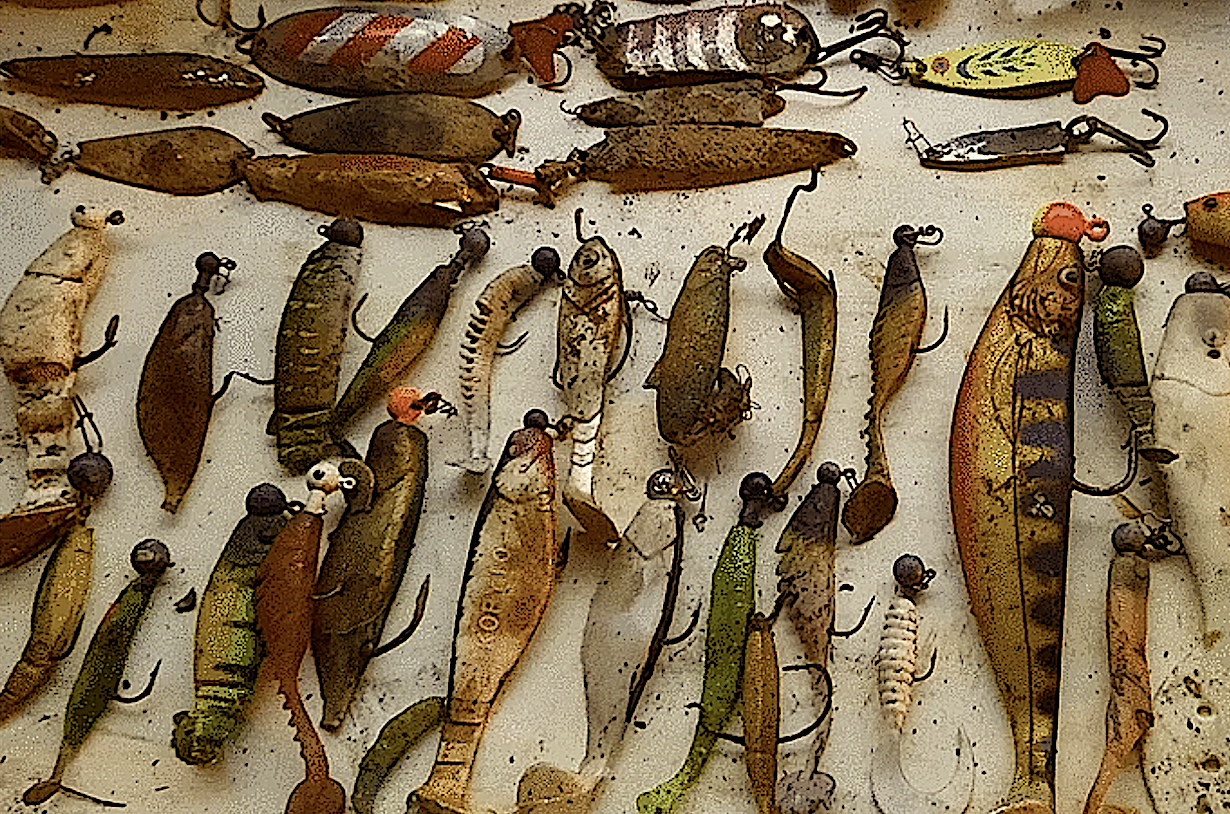Are Catch-and-Release Deepwater Fish an Easy Meal for Sharks?

Research suggests that using descending devices doesn’t serve up dinner.
Since the kickoff on July 19, I confess to binge watching National Geographic’s SHARKFEST. Five weeks of episodes highlight the varying behaviors and life strategies of the ocean’s greatest predators.
Just before SHARKFEST began, new regulations went into effect requiring use of a descending device in South Atlantic federal waters to help improve survival of released deepwater fish. But what if shark appetites can undermine this conservation strategy? A research team led by one of the scientists who appeared on SHARKFEST, Marcus Drymon of Mississippi-Alabama Sea Grant, decided to find out.
Research Need
Reducing mortality after catch-and-release in offshore recreational fisheries remains an important component of stock rebuilding for many reef fish. Mortality for these species can be high, due in part to injuries sustained during capture, coupled with high catch rates and regulations requiring release.
Possible causes of mortality also include plundering sharks and other predators. Anglers and regulatory agencies alike want to know more about such opportunistic feeding, especially during the use of descending devices, which help released fish reacclimate to water pressure and return to deep waters.
What did they study?
To understand whether use of descending devices increases opportunities for predators to have a quick meal, researchers examined two GoPro camera data sets of red snapper from the Alabama Artificial Reef Zone in the northern Gulf of Mexico. This area is the largest artificial reef network in the United States, supporting avid catch-and-release fishing for red snapper. Anglers in this region say sharks often partially or completely chomp off hooked fish.
Scientists reviewed video footage for fish caught and ascended on commercial longline gear and also for descender releases from hook-and-line-caught fish.
What did they find?
From 2016 to 2018, scientists collected a total of 1,483 videos from longline catches and 1,096 from descender releases. Sharks feasted on 54 longline catches but not on any fish released with a descending device. Videos also showed dolphins stealing from longlines 15 times, but, as with sharks, never from descender-released fish. Incidentally, 11 of those 15 instances of dolphins feeding off longlines occurred within a single two-day period.
Anything else?
Scientists believe red snapper resist the ascending longline hook and swim erratically, which attracts sharks. Conversely, red snapper attached to descenders are nearly motionless and, therefore, likely do not attract attention from predators.
So what?
Angler concerns about pillaging sharks have slowed the adoption of descending devices as a conservation strategy. However, results from this study show that descending devices aren’t actually baiting sharks or other predatory thieves, allowing released fish to live another day and help rebuild the population.
Reading
Drymon, J.M., Jefferson, A.E., Louallen-Hightower, C., and S.P. Powers. 2020. “Descender Devices or Treat Tethers: Does Barotrauma Mitigation Increase Opportunities for Depredation?” Fisheries. 45(7):377-379.
Summary compiled by Sara Mirabilio
Above photo: Bull sharks, courtesy of amanderson2/CC-BY-2.0
The text from Hook, Line & Science is available to reprint and republish, but only in its entirety and with this attribution: Hook, Line & Science, courtesy of Scott Baker and Sara Mirabilio, North Carolina Sea Grant. HookLineScience.com
- Categories:



